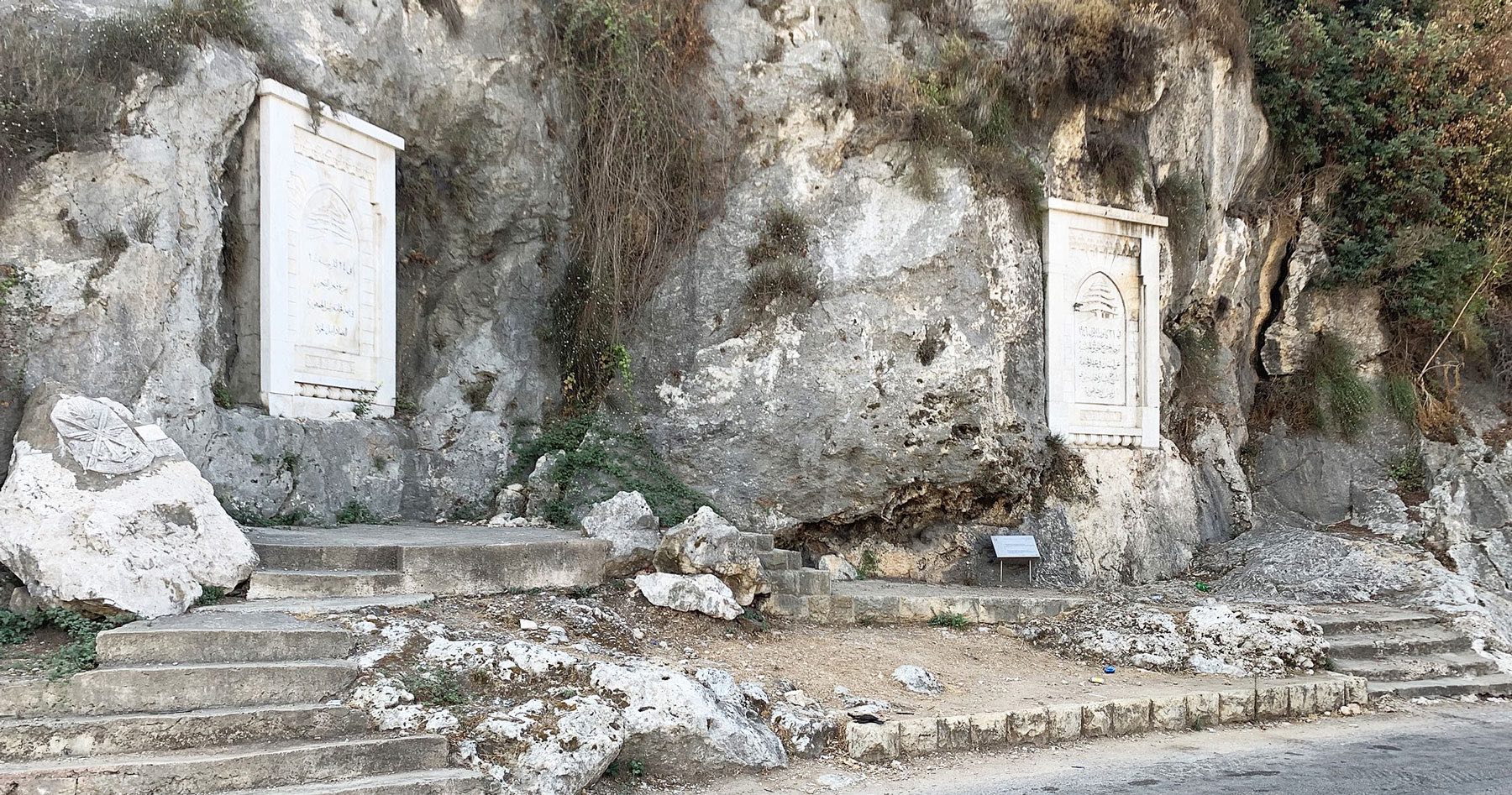In 1697 Henry Maundrell, academic of Exeter College in Oxford and Church of England priest, was acting as chaplain to the new Levant Company based in Aleppo, Syria. Perhaps realizing that his term as chaplain might soon end, he sought and obtained permission to assemble a small expedition and set out on a journey south to Jerusalem. With him were fifteen companions.
As they travelled down the Syrian coast, they eventually came to the north bank of the Dog River — its Arabic name is Nahr el-Kalb — where it entered the Mediterranean. An ancient bridge linked the high, dark walls of a steep-sided gorge. As they crossed the river, Maundrell noticed that there were large stone plaques built into the walls of the gorge, accessible only by an obviously ancient narrow path. They camped on the south bank and investigated.
To do so was not without danger. Maundrell has left us a vivid record of the area:
You have a path of about two yards wide along the side [of the cliffs] at a great height above the water, [this] being the work of the emperor Antonius… In several places we saw strange antique figures of men, carved in the natural rock, and in bigness equal to the life.
What Maundrell discovered when he and a few companions explored that path is today on the UNESCO Memory of the World Register. Maundrell had discovered what is perhaps the world’s most sustained record of conflict between warring empires.
The earliest plaque told the travellers that an army of Ramses II of Egypt had come here over 3,500 years before them. The army had arrived to establish Egyptian dominion over this area and to define the northern border of Egypt’s imperial territories.
Ramses used these great natural walls to boast of his conquests in many wars. By doing so he set the tone for a series of plaques that would tell the story of war for the rest of the historical record, down to very recent times. Century after century, armies will march through this area, pausing to get their engineers to cut into the cliffs a record of their passing, marking their ephemeral victories.
Twenty-five centuries after Ramses, Esarhaddon, king of the powerful Assyrian Empire, will march through here as conqueror in the 7th century. In that same century, Nebuchadnezzar, king of the newly victorious Babylonian Empire, already the conqueror of both Assyria and Egypt, is returning north through this pass to his imperial city of Babylon. He is so proud of his conquests that he places his plaque on the north side of the river opposite that of Ramses, sending the clear message that he has humbled the power of Egypt.
On and on the plaques go, each in its own stage of surviving the ravages of time and weather.
In 1861, Napoleon II and his French regiments cross this bridge to intervene in the Lebanese civil war, once again instructing his engineers to record the event.
In 1918, in their final drive to end the Ottoman Empire, British and French armies mark their triumphant passage on the walls of the pass.
A plaque tells us that in 1919 the British Desert Corps have taken Damascus, Homs and Aleppo. In 1941 troops of the Free French tell us in stone that they have liberated Damascus from the forces of Vichy France, marking their victory on these ancient cliffs.
There are others but that must suffice. Why tell this story? The simple answer is that it is once again the month of November, and our thoughts turn to memories of war. Those memories of war are not of war’s triumphs, as those ancient plaques of Nahr el-Kalb were originally intended to express. Our thoughts are of the futility of war, of its cost and of its terrible sadness.
The English poet Wilfred Owen wrote of what he termed “the pity of war.” In a memorable poem, written after a gas attack on the western front, he wrote:
If in some smothering dreams, you too could pace
Behind the wagon that we flung him in,
And watch the white eyes writhing in his face…
My friend, you would not tell with such high zest
To children ardent for some desperate glory,
The old Lie: Dulce et decorum est
Pro patria mori.




